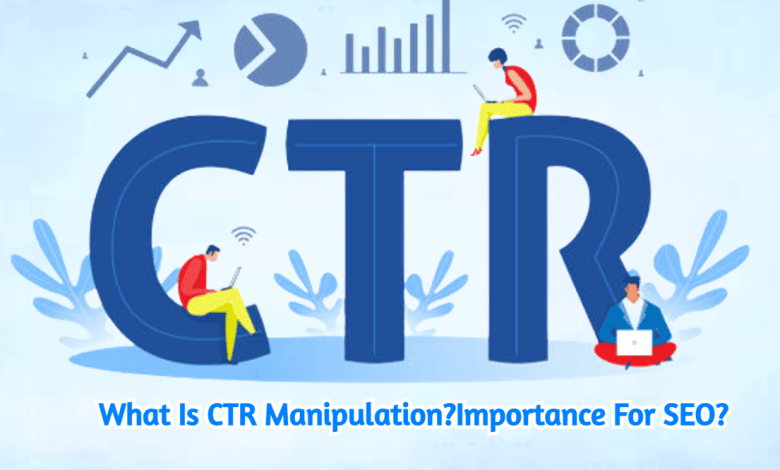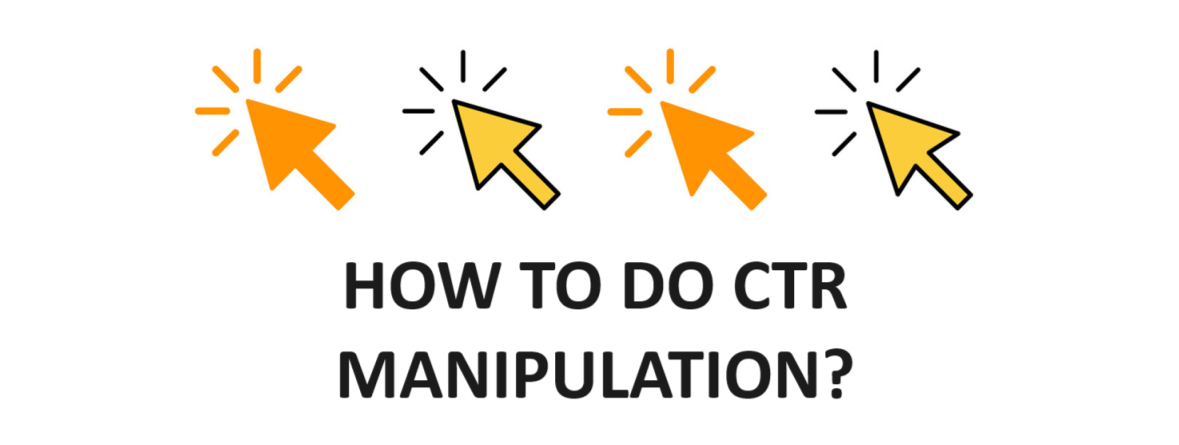Checking Out the Partnership Between CTR Control Solutions and Customer Habits
In the realm of digital marketing, the impact of click-through rate (CTR) control solutions on individual actions stays a facility and fascinating topic. As on the internet systems significantly count on CTR metrics to gauge the success of content, products, and solutions, comprehending how these controlled rates impact individual interaction and decision-making procedures is vital. The interplay in between CTR control and customer behavior raises inquiries concerning credibility, credibility, and the ethical effects of such techniques. By dissecting the elaborate partnership in between CTR manipulation solutions and individual actions, fascinating insights arise that may improve our understanding of electronic advertising and marketing methods and their impacts on customers.
Effect of CTR Control on Behavior
Examining the influence of Click-Through Price (CTR) control on individual behavior reveals critical insights into the characteristics of online involvement. CTR manipulation entails artificially pumping up the number of click a specific link or ad to trick individuals and internet search engine. This technique can bring about an altered assumption of a webpage's popularity or importance, ultimately influencing user habits.

In addition, CTR adjustment can alter the information utilized by algorithms to customize user experiences. This can result in users being served material that does not straighten with their choices or passions, eventually resulting in a decrease in user fulfillment and involvement. Recognizing the influence of CTR manipulation on user habits is crucial for maintaining openness and rely on on-line interactions.
Customer Interaction With Controlled CTR
Customer engagement with adjusted CTR data usually brings about skewed assumptions of online content popularity and relevance. When individuals interact with web content based upon synthetically filled with air Click-Through Rates (CTR), they might believe that particular information, items, or services are much more prominent or trustworthy than they actually are. This can cause individuals choosing based on misleading data, causing possibly unfavorable end results.
Involvement metrics like sort, shares, comments, and time invested in a webpage are usually influenced by CTR adjustment. Individuals might be a lot more inclined to engage with material that appears to have greater involvement rates, additionally continuing the cycle of manipulated understandings. Therefore, web content makers and advertisers might focus on generating web content that generates high CTR rather than concentrating on developing genuinely important and relevant product.

Psychological Effects of CTR Manipulation

Moreover, the mental impacts of CTR control can also manifest in altered decision-making processes. Individuals may be much more inclined to click on web content exclusively based on its viewed appeal, as opposed to its actual worth or relevance to their demands. This behavioral shift can result in a superficial interaction with on the internet material, where customers might overlook high-quality yet much less preferred offerings in favor of those with artificially boosted CTRs.
Fundamentally, the psychological implications of CTR manipulation highlight the value of keeping transparency and authenticity in online interactions to promote real user engagement and trust.
Ethical Considerations in CTR Manipulation
Considering the ethical ramifications of manipulating click-through rates (CTR) in on the internet systems is imperative for preserving integrity and depend on within the digital environment. CTR manipulation elevates concerns concerning deceiving users, distorting data analytics, and compromising the integrity of on the internet web content. One significant moral factor to consider is the prospective influence on user autonomy and decision-making. By unnaturally inflating CTR, users might be misled right into clicking web links or ads they would not have chosen otherwise, bring about a disingenuous online experience. CTR control can alter the performance metrics that organizations depend on to make strategic choices, eventually affecting market competitors and consumer depend on.
Another honest facet to ponder is the fairness of manipulating CTR to obtain an unreasonable benefit over rivals. Involving in such methods not just breaks concepts of fair game however likewise weakens the count on that users put in on-line platforms. It is important for businesses and digital marketers to support honest standards in their techniques to guarantee transparency, integrity, and lasting sustainability in the on-line atmosphere.
Ramifications for Digital Marketing
CTR control can lead to skewed data analytics, misguiding marketers right into believing that their projects are doing far better than they actually are. When individuals understand that CTRs have actually been controlled, it can deteriorate depend on in the brand, leading to lasting unfavorable repercussions for consumer commitment and brand name track record.
Furthermore, the use of CTR control services can create an unfair affordable landscape, where business that involve in such practices get a man-made benefit over those that comply with moral advertising requirements. This can suppress technology and creative thinking in digital marketing, as success becomes more concerning adjustment tactics than supplying genuine worth to customers. Eventually, the implications of CTR control for digital advertising extend past temporary gains, affecting the total sustainability and credibility of advertising initiatives in the electronic world.
Conclusion
Finally, the connection between CTR manipulation services and customer behavior is intricate and diverse. The impact of CTR manipulation on actions, individual engagement with adjusted CTR, psychological results, ethical considerations, and effects for digital advertising and marketing all play a role in shaping this relationship. Understanding these dynamics is critical for marketers and scientists alike in order to navigate important source the honest effects important link and make best use of the efficiency of their electronic advertising approaches.